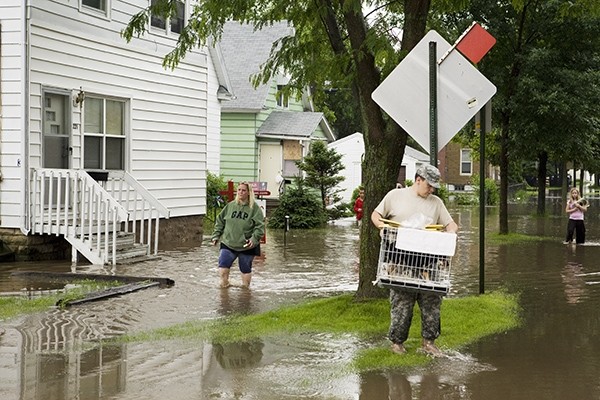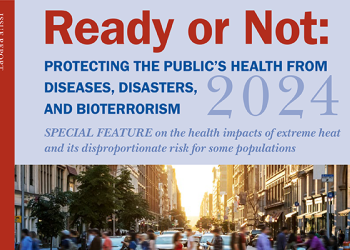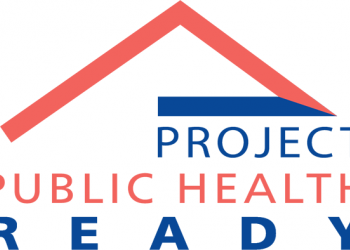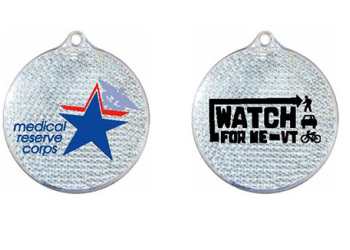While humans are the priority in disaster planning, Pet Preparedness Month in June provides a good reminder to also think about animals in our communities. While veterinary Medical Reserve Corps (MRC) units have a primary focus on animals, all MRC units can take steps to help their communities prepare. This month we feature a mix of units doing just that.
Duxbury MRC (MA)
When a powerful blizzard hit Massachusetts, several hundred residents in the community served by the Duxbury MRC were housed in a building with a co-located pet shelter. The unit took lessons learned from that experience to develop trainings
for its unit in partnership with the State of Massachusetts Animal Resource Team (SMART).
“Sheltering is a big priority because of our coastal locations,” said Assistant Unit Coordinator Lisa Kaufman. “While the MRC doesn’t run shelters, we support what’s going on and the unit does a lot of training and preparation in sheltering.”
The unit, which covers five small communities including two coastal areas, used funding from NACCHO to develop a two-part training on emergency sheltering for pets.
Level One of the training looks at working with people and provides the basics of how to assist owners with their animals. Level Two adds appropriate levels of interaction with owners and pets. These trainings were held in person and multiple MRC units in the state have taken part. Each training was about two and a half hours long.
The unit asked the Animal Control Officer (ACO) to be involved. The ACO bring cages and shows volunteers how-to stand-up cages. They have also brought live animals.
Those who finished the Level One training received a sticker for their unit ID card with paws. Those who completed Level Two training received a pin for their lanyards. This helps unit leaders to identify who has been trained.
Additionally, the unit develop job actions sheets for Level One and Level Two volunteers.
Oklahoma County MRC (OK)
While Oklahoma has a state animal response team, the volunteers of the Oklahoma County MRC requested animal response training for their units, which serves some rural areas in addition to Oklahoma City.
The unit used an Operational Readiness Award grant to host an introduction to disaster animal response. The three-hour training included 10 MRC volunteers and three from Oklahoma Search and Rescue. The training was developed and taught by a vet tech active with a neighboring MRC unit. The workshop covered animal behavior, restraint, and first aid.
Unit Coordinator Julia Reynolds said they plan to do a slightly more advanced training in the future and want to equip the unit with animal first aid kits.
“We want to bring people in from Texas A&M University, which has a veterinary emergency team,” said Reynolds. “We’re interested in having them come do a training and brining more supplies and materials. This type of training is helping to attract new volunteers and partners.”
Indiana State Board of Animal Health MRC (IN)
In the mid-1990s, a tornado hit a house trailer park in Indiana that had a no pets policy, yet nearly every home had a pet. That response was part of the impedance for integrating animal response into state planning. Those plans now include the Indiana State Board of Animal Health MRC, which launched about 12 years ago. The unit is comprised of 10 teams of six people. The teams are housed within the state’s 10 districts which each district covering 8-10 counties. Unit volunteers were initially comprised solely of veterinarians but now include vet techs and animal control personnel.
The unit partners with the State Department of Public Health and also has a formal arrangement with Indiana Homeland Security. When it started, the unit supported natural and situational disasters. Its mission now includes animal health emergencies.
Several initiatives help to ensure that local communities are prepared in the event of an emergency impacting animals.
The unit hosts a class on animal issues and disasters. The one-day class is for veterinarians, vet techs, animal control staff, first responders, agriculture staff, and farmers, most of whom have not taken ICS. The class teaches participants what happens in a response. It provides both basic information like terminology and Indiana-specific response information.
“A tornado hit an area a few years ago which was home to those who had taken the training,” said Indiana State Board of Animal Health Public Information Director Denise Derrer Spears. “They were able to handle the response at a local level.”
The unit is re-addressing the class after COVID-19 to update its format. About 2/3 of the class provides background information and then participants work together to start making a plan and running a scenario—who will perform what role, how will you respond to sick cats, pregnant dogs, etc. The unit is using an Operational Readiness Award to make an online version of the first segment of the class. Evening sessions will then be offered to engage participants in the hands-on/scenario-based portion of the class.
“Folks are dedicated but time is a struggle,” said Spears. “We’re hoping more online trainings will contribute to readiness.”
Additionally, the unit hosts quarterly lunch and learn webinars on a Wednesday or Thursday over lunch time.
“Vets can close the practice during that time, order lunch for staff, and they all watch the webinar together,” said Spears. “We’re trying to make it more accessible to those who are interested and want to participate.”
Lunch and learns focus on a topic related to disaster preparedness or public health. Free CEs are offered and most of the videos are posted online to the unit’s YouTube for veterinarians channel.
To reach a broader community, Indiana’s “Ready Pet Go” campaign focuses on owners. An informational brochure on how to prepare before, during, and after a disaster is printed on cardstock and serves as a check list for owners. It includes such information as pet-friendly hotels, a place to include a pet photo, and microchip information. The brochures are handed out at fairs and given to MRC members. Vets includes the information as are part of puppy kits at first exams and other MRCs use the brochure at events.
Kansas State Animal Response Team Veterinary MRC (KS)
In Kansas, MRC responses involving animals generally fall into three categories: tornado, flooding, and wildfires. The Kansas State Animal Response Team Veterinary MRC (KSART) has about 200 volunteers ready to respond, including veterinarians, vet techs, and animal rescue personnel trained in emergency response. They also have six trailers staged across the state with materials and supplies.
“It’s to our benefit to have volunteers statewide who are prepared and trained,” said KSART President Bob Potemski. “Animal response has changed. Before Hurricane Katrina there was no PETS Act. Once that Act passed, everyone had to pay attention to companion animals.”
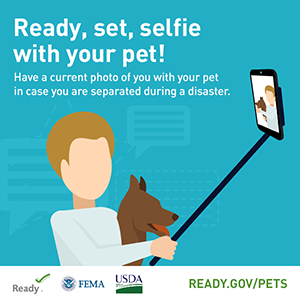
The unit has found tabletop exercises to be very effective for training a large number of volunteers across a large area. For example, the unit did a wildfire training remotely in which they presented information about a wildfire scenario and then did a Q&A with participants. Potemski said they plan to use Zoom for future trainings so that they can include breakout rooms for discussions.
In addition to online trainings, KSART is planning an in-person decontamination training with Kansas’ Department of Emergency Management. The training will include horses and goats and the exercise will be recorded and available for later viewing on the unit’s private YouTube channel.
In thinking about pet preparedness and how “pet parents” can prepare in the event of an emergency, Potemski shared a list of recommendations, including what to pack in a “go kit” and special considerations for exotic and pocket pets.
Potemski reminds pet owners that, “in a disaster scenario, you’ll either stay put or evacuate. Prepare for each and practice your plan monthly or quarterly. Don’t practice your plan for the first time in an emergency.”
Pet Preparedness Resources
